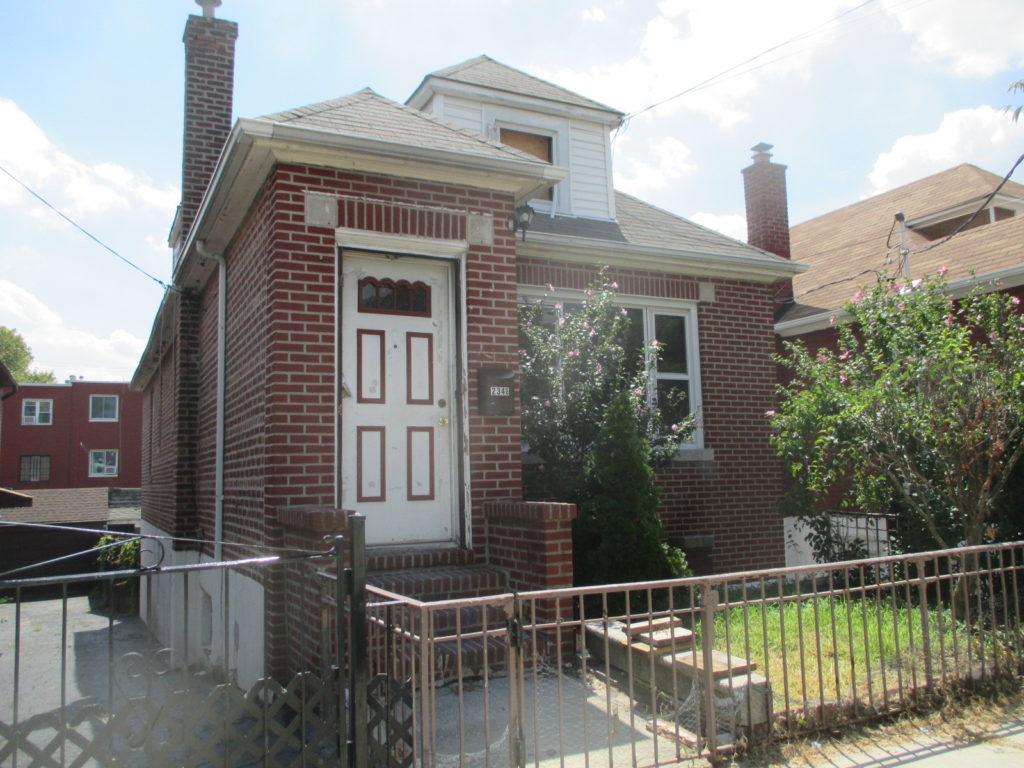You may want to keep your house after a divorce, but realistically that may not be your best decision, or even a choice at all. Many people have an emotional attachment to their home, but things change, especially after you divorce your spouse. If you are going through a divorce on Long Island or in the five boroughs, after careful consideration you might find that selling the home and making a fresh start makes a lot of sense.
Pros to Keeping the House after Divorce
Deciding whether to fight to keep the family home after a divorce is one of the most difficult decisions you will make. This is especially true if there are school age children involved. Be aware that the house may be more of a liability than an asset if the monthly mortgage payment is more than you can afford on one salary.
These are some good reasons to consider staying in the house.
- Less disruption for the children: For kids suffering the trauma of divorce, moving to a new home can be an added stress. A move may mean that they will have to make new friends in a different school.
- Less disruption for you: Chances are you have established roots in the community and you have a support system around you. While you can still see the people in your neighborhood, moving to a new are means finding people you trust to share carpooling for activities and setting up play dates with parents of your child’s new friends and classmates.
- The house is appreciating in value: if you live in an area where housing prices are skyrocketing, you may want to do everything you can to hold on to the house.
Cons to Keeping the House after Divorce
While staying in your house will allow you to avoid the hassle of packing up and moving to a new area, you have to be sure that you will be able to afford it. When you do the math, figure in the cost of insurance, taxes and maintenance along with any repairs that need to be made.
Here are some reasons to sell the house and move on:
- Finances: If you discover that you will not be able to cover mortgage payments and other expenses, remaining in the house is not an option. You might be able to work out a deal with your spouse, or refinance the home to make payments more affordable. If not, you can sell and move to less expensive housing.
- The bank won’t refinance: If you are unable to secure a new mortgage loan to lower your payments, you may not be able to afford to stay in the home.
- A falling real estate market: When prices for real estate in your area are falling, you may decide that keeping the home is not in your financial interest. In that case, you can sell and use whatever equity you wind up with to finance a new residence. Or, you can keep the money as a cushion for living expenses and rent.
If the House is “Underwater”
To complicate things, your house may be “underwater” where you owe more to the bank than you can recoup in a sale. If your ex agrees that you can keep the house, you can try to modify the loan with the bank. Another option is to have your former spouse agree to continue to make payments on the house. Payments would be made directly to the bank, not as part of the alimony payment. You can assume the mortgage or pay it off, if you can afford it. Or, you can sell the house in a short sale.
Choosing a Short Sale
A better option may be to get rid of the house in a short sale when housing prices have dropped. You will want to have an agent experienced in short sales guiding you through the process for a good result. In a short sale, the bank agrees to accept less money than the balance you owe on the mortgage. You have to convince the bank to accept a short sale with documentation and a hardship letter. Include a comparative market analysis that shows the prices of recently sold similar property in the area to justify a lower selling price. In addition, you will need to include a balance sheet showing your income and expenses so the bank will see why you, as a single homeowner, will have difficulty making the payments.
Relocating after Divorce
If you decide to sell your house in a short sale, your agent may be able to get you money for relocation. In that case, you may be able to rent in the same community so the children will not have to switch schools. Or, you might be able to secure a rent-to-own agreement with a seller in the neighborhood. In that case, you can put aside some money toward a down payment on the home along with your rent and purchase it at a future agreed upon date. This is a good option if you can afford it, and if you believe you will qualify for a mortgage.
Real Estate Advice after Divorce
Every situation is different, and you have to weigh the pros and cons to come up with a viable alternative to foreclosure.
Realty Warehouse Specialist can help if you live on Long Island or in the five boroughs of New York.
We specialize in helping homeowners like you choose the right option, whether it is a loan modification, a short sale or a rent-to-own agreement. Our relocation department can help you find more affordable housing, and we may be able to help you get money for the relocation process. Realty Warehouse enjoys an A+ accreditation rating from the respected Better Business Bureau. You can count on us to offer the advice you need and provide effective alternatives in this extremely stressful situation.
Looking to sell your property fast?
Call, click or chat with Realty Warehouse for a 10 minute consultation that can change your life.
This blog is for informational purposes only, subject to change.

